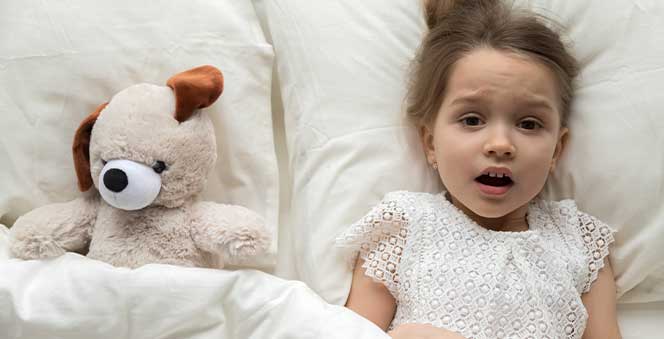Babies and adolescents need at least nine hours of sleep per day. If it takes babies or children a little while to sleep down, it’s okay. But if your child seems like having a lot of trouble, it could be a sleep disorder. Lack of sleep can have negative effects on the health of the baby and can also affect children’s performance in school and their other activities. Sleep Disorder in Babies & Children: Causes & Treatment
THE INDICATIONS OF A POSSIBLE SLEEP DISORDER IN A CHILD OR BABY ARE AS FOLLOWS:
- The baby complains of itchy legs at night
- The baby snores loudly
- The baby only sleeps for about 90 minutes continuously at a time
- Difficulty falling asleep
- Problems with sleeping through the night
- Difficulty staying awake during the day
- Unexplained decrease in daytime performance
- Odd events during sleep like sleepwalking or nightmares
These indications clearly show that your baby may be suffering from a sleep disorder, and is the right time to take some serious actions towards your child. A lack of sleep may cause the following problems for your baby and children-
- Accidents and injuries
- Behavior problems
- Mood problems
- Memory, concentration, and learning problems
- Performance problems
- Slower reaction times
- Overeating
NIGHT TERRORS
More than just a nightmare, Night terrors are really scary and can threaten everyone in the house. It is seen that Night terrors are more common in children than adults. In this, a person abruptly gets up from sleep, looking extremely terrified or upset, sometimes screaming, shouting, and sometimes sleepwalking. Sometimes most children don’t even remember the incident and aren’t awake properly.
As of now, there is no proper treatment for night terrors, but you can help reduce the chances that they will happen by holding to the sleep routine and limiting night-time distractions to a minimum.
SO AS A PARENT, WHAT CAN YOU DO TO IMPROVE YOUR CHILD’S SLEEP?
Scheduled up a regular bedtime every night and don’t differ from that. Similarly, the wake time will not be greater than one to one and a half hours away from weekdays to weekends.
- Establish a relaxing bedtime routine, such as offering your baby a warm bath or reading a book.
- Try to avoid any food or drinks with caffeine, six hours before bedtime.
- Maintain a comfortable bedroom temperature
- Make sure there is no noise level in the house or keep it as low as possible.
- Try to avoid serving children with heavy food close to bedtime.
- Create a relaxing time after dinner, because too much movement prior to bedtime can leave kids awake.
- Make sure that there is no computer, television, mobile phone, or radio, which should be turned off at least one hour prior to bedtime. TV and video games and music by other family members should also be avoided before bedtime.
- Also, try to avoid getting into bed with a child in order to get them to sleep. Babies should be put to bed when they appear tired or feel sleepy but still awake.
After floating in amniotic fluid for about 9 months in mom’s belly, the best thing to do when you first come out into the big blue world is to have a Skin to Skin moment with mom! Sleep Disorder in Babies & Children: Causes & Treatment




